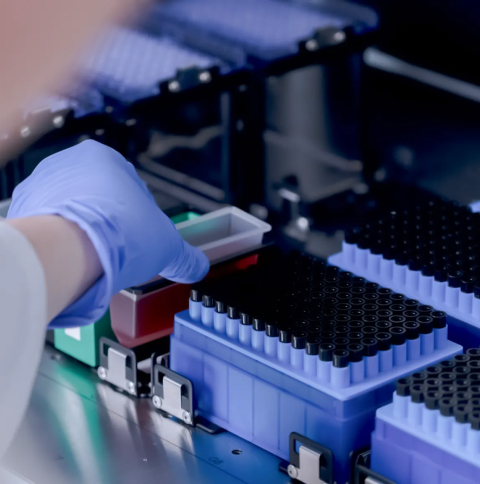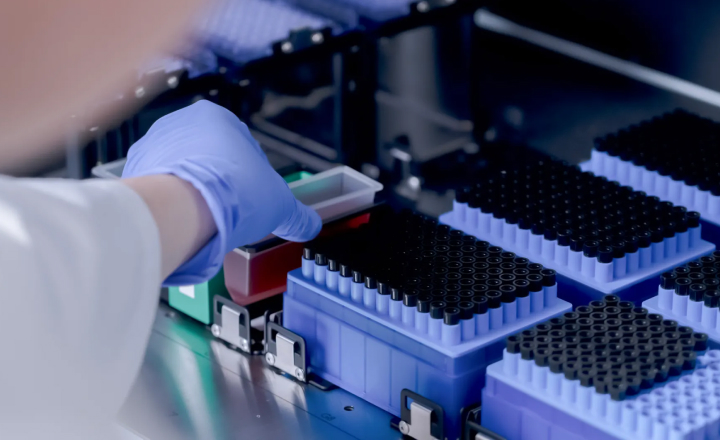

- Method Development
- Method Performance Testing
- Method Transfer
- Specification, Release, Characterization
- Interim Reference Standard
- DS / DP Stability
- Clinical Run
- In-Use Stability/ Product Characterization
- Method Development
- Method Performance Testing
- Method Transfer
- Specification, Release, Characterization
- Interim Reference Standard
- DS / DP Stability
- Clinical Run
- In-Use Stability/ Product Characterization
Analytical Method Development
Leveraging our extensive in-house expertise, we provide a full suite of analytical method development services aligned with ICH Q2 (R1) guidelines. Our team supports characterization, stability testing, and release analytics to ensure robust, reliable, and reproducible data throughout biologics development. Clients benefit from integrated workflows that connect seamlessly with Drug Substance Manufacturing and Drug Product Manufacturing for accelerated program advancement.
Analytical Method
-
-
Appearance/
General/Safety - Compendial Testing
-
Appearance/
-
- Quantity
-
Protein Concentration
(A280)
-
- Potency
- ELISA, Cell-based Assay
-
- Identity
- icIEF / Peptide Mapping
-
- Purity/Impurity
-
CE-SDS (R, NR),
SE-HPLC, icIEF / CIEX,
HCP / HCD /
Residual
Protein A, RP-HPLC
Extended Characterization
-
- Primary Structure
-
Intact / Deglycosylated / Reduced MS
Full-length Sequencing
Peptide Mapping (LC-MS)
N/C-terminal Sequencing
-
-
N/O-linked
Oligosaccharides - Glycan site / Structure / Profile
-
N/O-linked
-
-
Aggregation and
Fragmentation - SEC-MALS / DLS
-
Aggregation and
-
- Higher Order Structure
-
Far and Near UV CD / DSC /
Disulfide bond / Free Thiol
-
- Binding Affinity
- SPR (FcRn and FcgRs)
-
- Biological Activity
-
ELISA, Cell-based Assay /
ADCC / CDC
Cell-based Assay
Our team provides comprehensive cell-based assay development aligned with the mechanism of action (MoA) of each therapeutic candidate. We maintain a robust ADCC/CDC assay platform and evaluate the influence of process parameters on functional activity without extending development timelines.
-
- ADCC/CDC Assays
-
* Platform methods for target effector:
PD-L1, HER2, EGFR
-
-
Reporter
Gene Assays
-
Reporter
-
-
Cell MoA-based
Proliferation Assays
-
Cell MoA-based
DoE Approach to ADCC/CDC Modulation
Design of Experiments (DoE) methodologies enable the efficient evaluation of N-glycan profiles and associated effector functions. These approaches allow scientific teams to characterize product attributes in parallel with Non-GMP / cGMP Manufacturing and clinical material production, refining data-driven processes and accelerating development outcomes.
Characterization & Comparability Studies
Our expert analytical team applies orthogonal physicochemical and structural characterization methods to support comparability studies, process monitoring, and in-depth product profiling. These activities provide critical insights during Late Discovery and Process Development, ensuring consistent quality throughout the product lifecycle.
-
- Primary Structure
- Fundamental for biologic development, identification, and product homology. Used to confirm the correct protein sequence has been made by verifying the mass of the product by ESI-MS and peptide mapping.
-
- Glycosylation
- Critical to monitor, as the glycan profile can impact biological activity, function, clearance, serum half-life, immunogenicity, and activity.
-
-
Binding Affinity and
Biological Activity - Ensures specificity, activity, and efficacy of the molecule.
-
Binding Affinity and
-
-
Higher Order Structure,
Aggregation, Fragmentation - Changes in higher order structure can impact quality, stability, safety, and efficacy, leading to a loss of biological function and immunogenicity.
-
Higher Order Structure,
Stability Testing for Biologics
Our Analytics Team conducts comprehensive analytical testing in accordance with ICH guidelines, applying advanced protein analytical techniques for precise and reliable results. Stability testing services integrate with Quality Assurance for end-to-end support.
• Our top priority is to ensure client satisfaction through the prompt delivery of accurate results.
• By implementing our Electronic Lab Notebook for data digitalization, we leverage an efficient data management system of electronic worksheets and automated data transfer to enforce data integrity.
Non-GMP Stability Testing
We support long-term, accelerated, and stressed stability studies to evaluate the quality of the reference standards, drug substance, and drug product under the influence of environmental factors such as temperature and humidity over time. These are performed in compliance with ICH Q1A (R2).
In-use Stability
Ensuring the integrity and quality of biotherapeutic products in multidose containers can be challenging. We have the experience and facilities to study the physicochemical attributes and biological activity of drug products in accordance with regulatory guidelines.
De-risking Product Development
To minimize product development risks, our analytical team deploys advanced platforms for sequence variant analysis and host cell protein identification. These proactive strategies support early-stage decision-making and strengthen overall program robustness. De-risking activities throughout Biopharma Manufacturing ensure end-to-end consistency.
Sequence Variant Analysis (SVA)
Sequence Variant Analysis (SVA) enables the early detection of incorrect protein sequences using advanced LC-MS/MS workflows. Applied to cell line development and upstream samples, SVA provides critical visibility into structural consistency and enhances long-term stability assessments across Cell Line Development programs.
Host Cell Protein (HCP) Identification
We utilize sensitive analytical techniques to detect and quantify host cell protein at levels below 10 ppm, in alignment with ICH Q6B expectations. HCP identification supports upstream and downstream optimization, providing essential insights for enhanced Quality Control and product consistency.
Related Content
End-to-End Analytical
Development for Biologics
At our state-of-the-art facility, our experienced scientists and engineers deliver comprehensive in-house analytical capabilities to support a broad spectrum of biologics programs. From monoclonal antibodies (mAbs) to advanced non-mAb modalities, our team applies customized analytical method development strategies to address the complexities of each molecule. With a strong commitment to quality and innovation, Samsung Biologics provides the analytical development expertise needed to advance clients' biotherapeutic programs with confidence. Explore related services, including Process Development and Analytical Testing.